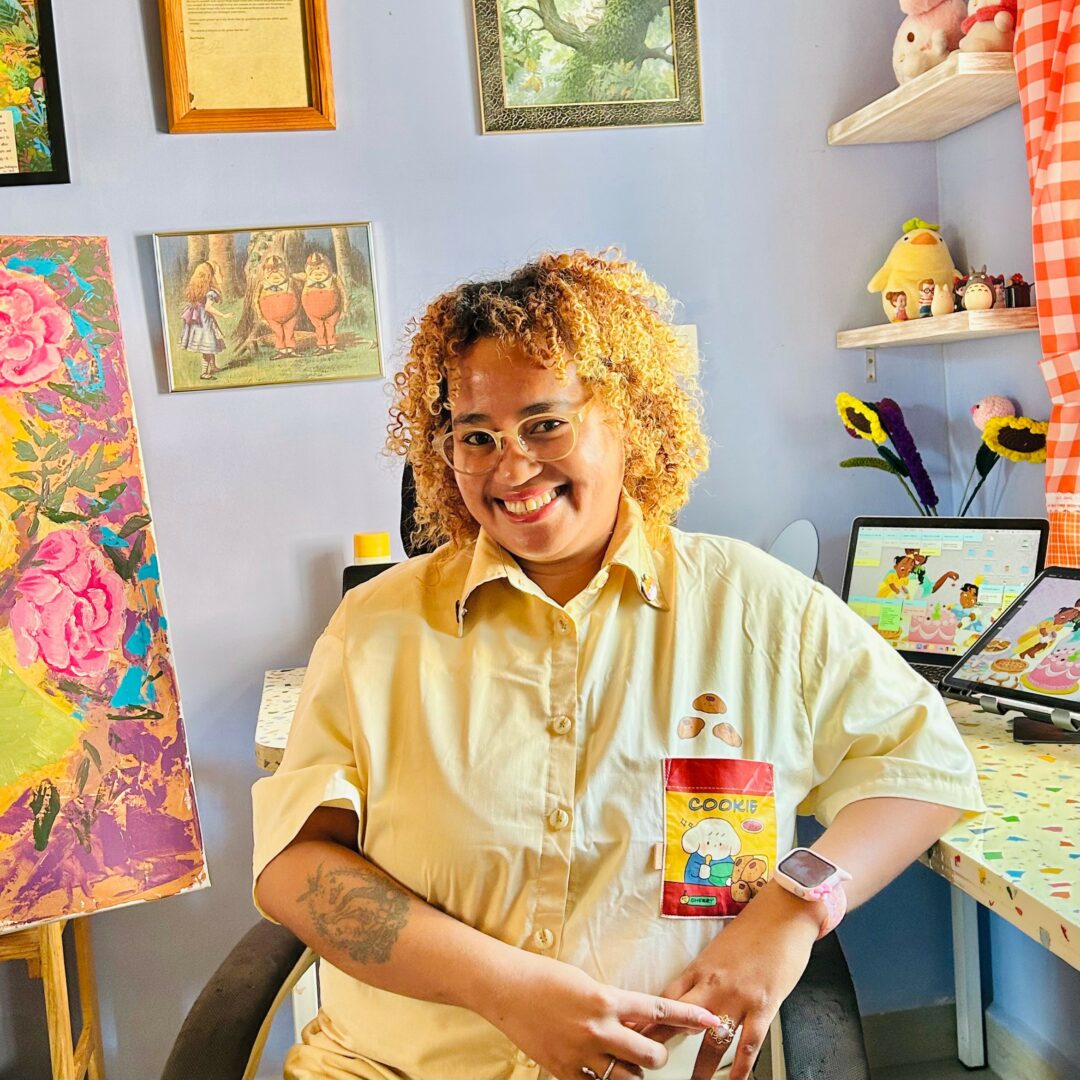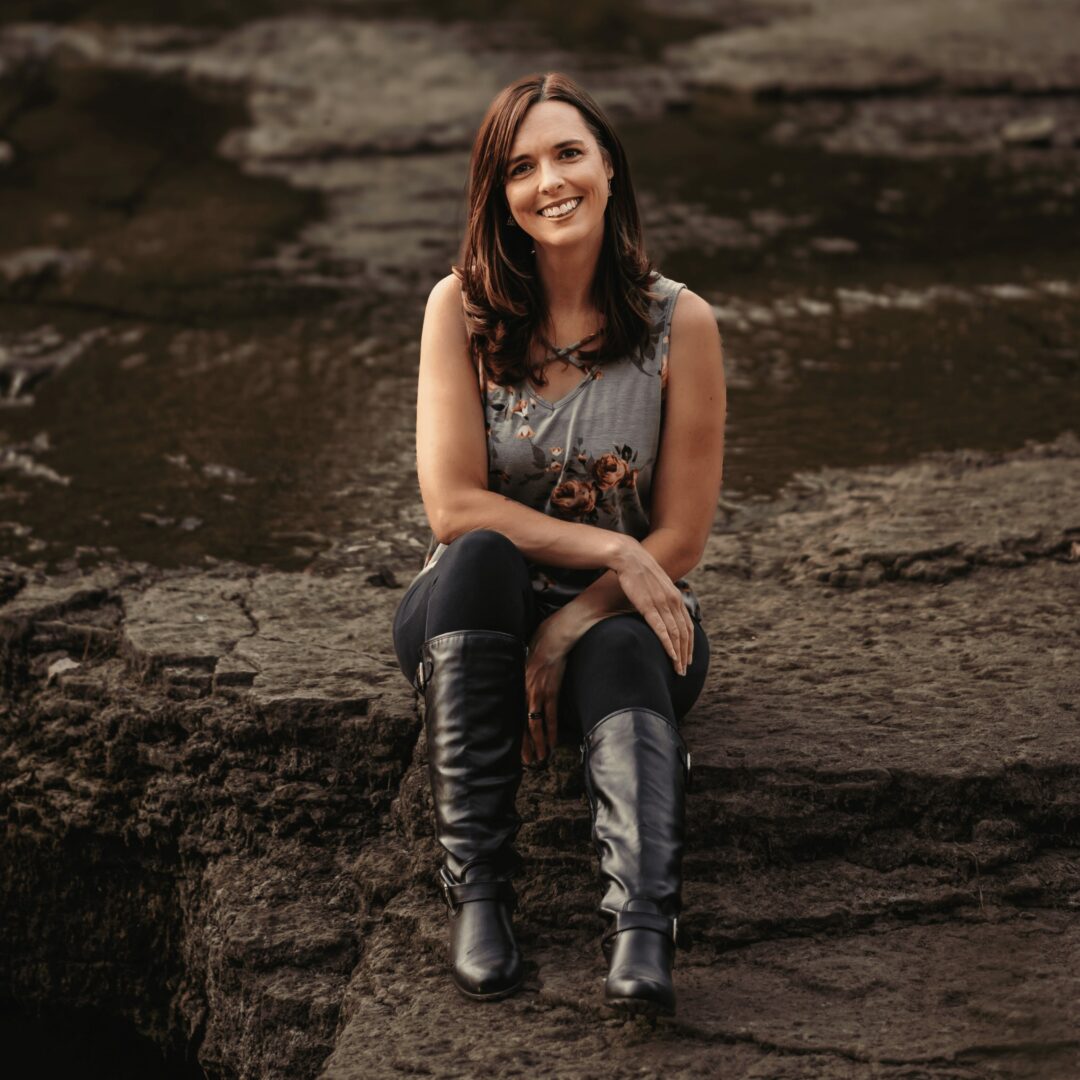We were lucky to catch up with Ai Matsui Johnson recently and have shared our conversation below.
Ai, we’re so excited for our community to get to know you and learn from your journey and the wisdom you’ve acquired over time. Let’s kick things off with a discussion on self-confidence and self-esteem. How did you develop yours?
Building my self-confidence and self-esteem has been deeply rooted in the love I give to myself and the unwavering support from my parents. My name, Ai, meaning “love” in Japanese, serves as a constant reminder of their hope that I would embody both love and compassion. By embracing simplicity, balancing the highs and lows of life, and recognizing the impermanence of all things, I’ve learned to accept myself more fully. Although I faced self-doubt and challenging emotions during my youth, understanding the concepts of love and self-acceptance formed the foundation for my resilience and inner confidence.
Additionally, committing to small daily promises has significantly bolstered my self-esteem. In a world that constantly demands efficiency and productivity, it’s easy to lose sight of our own needs. By prioritizing these small commitments to myself, I’ve cultivated a sense of accomplishment and self-worth. Ultimately, my journey is a testament to the transformative power of love—both from within and from those around us. Embracing this love not only enriches my life but also empowers me to inspire others on their paths to self-discovery and acceptance.

Thanks for sharing that. So, before we get any further into our conversation, can you tell our readers a bit about yourself and what you’re working on?
Hello, I’m Ai Matsui Johnson, a New York-based Feng Shui Interior Consultant, and my guiding motto is, “Love your home, love yourself.” With “Ai” meaning “love” in Japanese, I truly believe that nurturing our living spaces encourages us to learn more about ourselves and embrace self-improvement and acceptance. When we cultivate a home environment that feels harmonious, we radiate love that touches those around us, creating a ripple effect that starts with ourselves and extends into the world.
Originally from Japan, I hold certifications as a Feng Shui Interior Design instructor licensed by New York State and from Parsons School of Design in Architectural Studies & Interior Design. Through my company, Ai Feng Shui Interior Consulting, I aim to help clients bring balance into their lives by enhancing their living and work spaces with Feng Shui principles, thoughtful interior coordination, and home organization. I work with clients both in person and remotely, offering tailored insights that transform their environments into spaces of harmony and productivity.
I am also the author of A Little Bit of Feng Shui, part of Sterling Publishing’s A Little Bit series, with Barnes & Noble.
Since our surroundings mirror who we are, my approach involves providing personalized consultations that enable clients to create spaces that feel both balanced and uplifting. Recently, I launched a small community called Club 20 Minutes, where like-minded clients and friends gather remotely in the mornings to work on personal tasks, like organizing, stretching, or meditating, for just 20 minutes, three times a week. This routine, initially to help clients stay on track with their projects, has become a powerful practice of self-belief and confidence. I hope to open this community to a wider audience soon.
My belief is that even a small amount of positive energy can generate more, spreading warmth and love far beyond our immediate surroundings. This journey starts with each of us and begins at home.

Looking back, what do you think were the three qualities, skills, or areas of knowledge that were most impactful in your journey? What advice do you have for folks who are early in their journey in terms of how they can best develop or improve on these?
Three core qualities that have most influenced my journey are:
Simplicity
Yin-Yang Theory and Feng Shui
Acceptance of Impermanence / Buddhism
Simplicity is a value deeply rooted in my life in Japan. In a world of complexity, I believe simplicity allows us to focus on what truly matters, clearing away the unnecessary. I apply this to my surroundings and thoughts, choosing to keep only what I need and letting go of what no longer serves a purpose. This practice brings a sense of calm, clarity, and freedom, grounding me amidst life’s challenges and transitions.
Yin-Yang Theory, a fundamental principle in Feng Shui, has profoundly shaped my perspective. I see light and shadow, happiness and sorrow, life and death, not as opposing forces, but as interconnected elements of a complete cycle. We experience joy because we’ve felt sadness; morning follows night. Embracing this concept allows me to view situations without rigid labels of “good” or “bad.” Life is about balance and harmony, and even though it’s not always easy, keeping this balance at the forefront helps me approach each day with greater understanding and compassion.
Acceptance of Impermanence, as taught in Buddhism, holds a deep place in my heart and is a concept familiar to many in Japan. Life’s impermanent nature reminds us to embrace each moment, breath, encounter, and emotion. Knowing that nothing lasts forever has helped me navigate dark periods, encouraging me to appreciate everyone and everything—family, friends, and even small daily interactions, like the kindness of a server or the work of cleaning staff. Each moment becomes an opportunity for gratitude and presence.
Advice for those on their own journeys: Accept both your positive and negative qualities. Many of us try to suppress negative emotions and only focus on the positive, but allowing ourselves to be vulnerable builds inner strength. I believe this balance is the foundation of true self-love.

Before we go, maybe you can tell us a bit about your parents and what you feel was the most impactful thing they did for you?
The most powerful gift my parents gave me was my name, Ai, meaning “Love” in Japanese. I believe they hoped I would become someone who loves deeply and is loved in return. But ironically, for a large part of my life, love was the furthest thing from what I felt. From childhood through my teens and even into my twenties, I struggled intensely with feelings of despair from the world. Secretly, I thought I wanted to die before I turned 20. I even read books about the “best” ways to end my life, hiding this turmoil under a surface of happiness. I pretended to live cheerfully, but deep down, I felt numb to the world, without knowing the specific reasons.
One vivid memory I have is from my teenage years. In a moment of anger, I told my mother, “I didn’t ask to be born.” The sadness in her eyes, her silence—it’s something I still carry with me, and I regret it deeply. Back then, I didn’t understand how much she and my father loved me, or what love truly meant. They loved me without conditions, through my hardest phases, which ultimately became my anchor.
Over time, that same love inspired me to slowly confront my pain, to start learning about self-acceptance. Now, my name isn’t just an identity—it’s a purpose. It reminds me daily to choose love over resentment, to seek harmony and understanding. I’m always striving to deepen my understanding of love, not just for others but also for myself. This journey, rooted in the powerful name my parents gave me, has helped me transform my past struggles into something meaningful.
Contact Info:
- Website: https://www.aimjohnson.com/
- Instagram: https://www.aimjohnson.com/
- Facebook: https://www.facebook.com/aifengshuiinterior/
- Twitter: https://x.com/AiJohnsonnyc
- Youtube: https://www.youtube.com/@aifengshuiinteriorconsulting
- Yelp: https://www.yelp.com/biz/ai-feng-shui-interior-consulting-brooklyn?override_cta=Book+a+consultation
- Other: https://www.amazon.com/Little-Bit-Feng-Shui-Introduction/dp/1454944331/ref=sr_1_1?dib=eyJ2IjoiMSJ9.UdUX–Vsh2Xx62F-lgZ0DbNh64r5G5q7LTZoxzROs88kNBPXO8DK5Vs0okC7LI3FxMidPuqWe9yNOLFWSNqQQhRVoeUna8Mwcc_4Nf3eRklbBzp5LWqqclM_KfG8yuTVDyB_qrWi_w3djLwoxj9l9ueS2GEullwHPLvJrAxQ4WYe0-ANPBxZJMGuCqCL5PY2saQW4fpcEIplaan8eReVXSy4hwzVI8aS44U4gj_OreU.Wnrr-YjletxfcRim9anlOFVbRQH7vIwV7rG6uzN08R0&dib_tag=se&hvadid=706049042572&hvdev=c&hvexpln=67&hvlocphy=9007527&hvnetw=g&hvocijid=5598376268083552876–&hvqmt=e&hvrand=5598376268083552876&hvtargid=kwd-1643496512340&hydadcr=15085_13557105&keywords=a+little+bit+of+feng+shui&qid=1730566948&sr=8-1A Little Bit of Everything




Image Credits
Monica Sintigo
so if you or someone you know deserves recognition please let us know here.




